Nestled between the Atlantic Ocean and the Mediterranean Sea, Morocco is an enchanting blend of history, culture, and natural beauty. Known for its vibrant cities, ancient traditions, and breathtaking landscapes, Morocco has captivated the hearts of travelers for decades. But what exactly makes this North African gem so famous?
This guide dives into Morocco’s rich history, iconic landmarks, culinary delights, and adventures waiting to be discovered. Whether you’re a culture seeker, a foodie, or an adventure traveler, Morocco has something unforgettable in store for you.
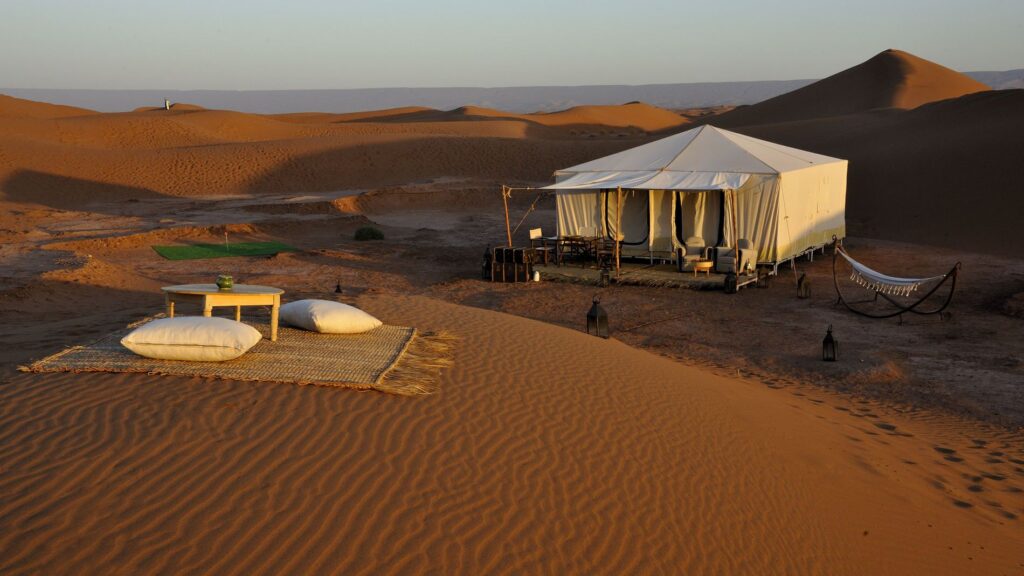
Morocco’s History & Culture
One of the reasons Morocco stands out as a must-visit destination is its incredible history, shaped by influences from Berber, Arab, and European cultures. Over centuries, Morocco has been a cultural melting pot with deep traditions, artistic heritage, and historical treasures waiting to be explored.
A Confluence of Cultures
Morocco’s culture is a vibrant mix of Berber, Arab, and Andalusian roots. Wander through the medinas (old towns), and you’ll notice everything from intricate mosaics to Arabic calligraphy and Berber carvings.
The Gnaoua music tradition exemplifies Morocco’s cultural diversity. Rooted in sub-Saharan Africa and infused with spiritual significance, Gnaoua music is celebrated at the annual Gnaoua World Music Festival in Essaouira. It’s not just music—it’s a soulful connection to Morocco’s rich history.
The Legendary Blue City

Tucked away in the Rif Mountains is Chefchaouen, the famed “Blue City.” With its streets and buildings washed in stunning shades of blue, this small town is one of Morocco’s hidden gems. Some say the blue symbolizes the sky and heaven, while others claim it was introduced to repel mosquitoes. Whatever the reason, the effect is magical.
Iconic Landmarks
Morocco is home to world-famous landmarks that reveal its diverse history and landscapes.
The Medina of Marrakech
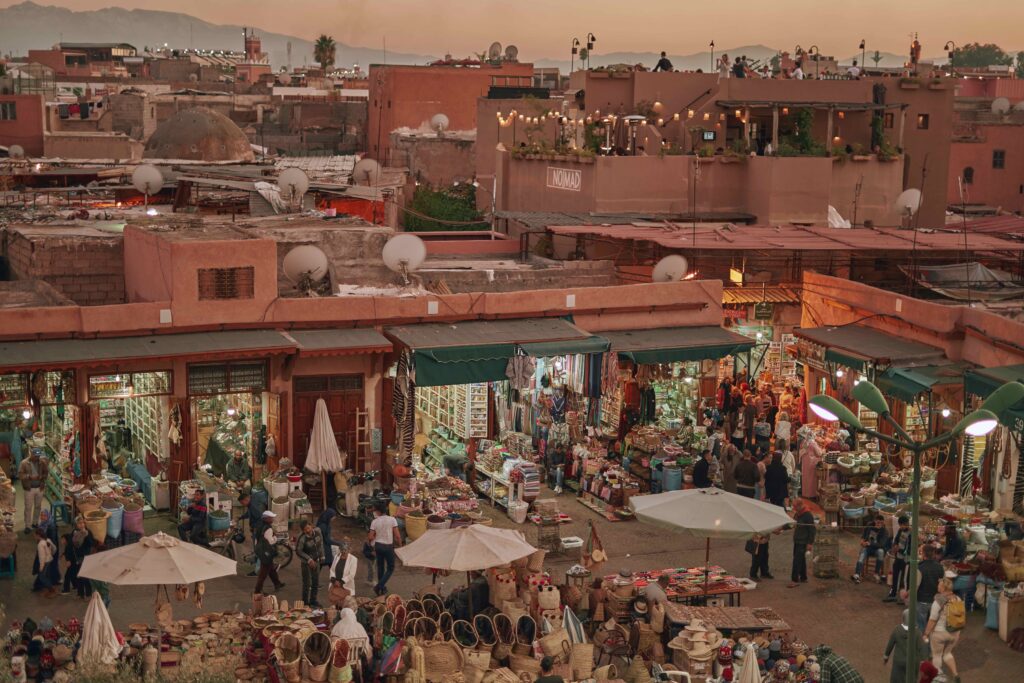
A UNESCO World Heritage Site, Marrakech’s medina is a bustling maze of narrow streets packed with souks, gardens, and architectural wonders like the Koutoubia Mosque. Don’t miss Jemaa el-Fnaa Square, where stalls, performers, and mouthwatering street food come alive every evening.
Roman Ruins of Volubilis
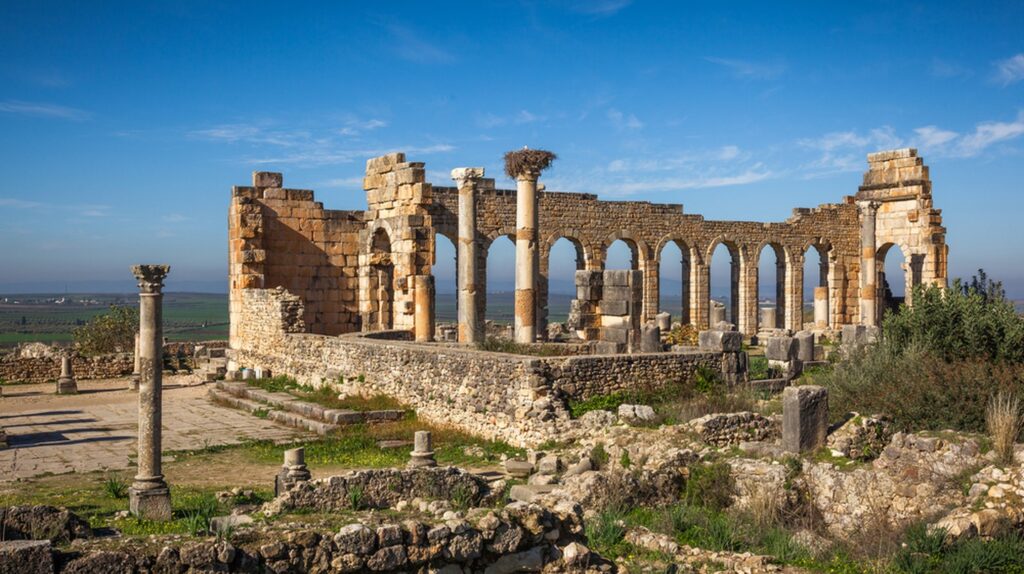
History buffs will appreciate the ancient Roman ruins of Volubilis, another UNESCO World Heritage Site. This remarkably preserved archaeological site tells the story of Morocco’s Roman past, with its grand mosaics and stone columns.
The Sahara Desert
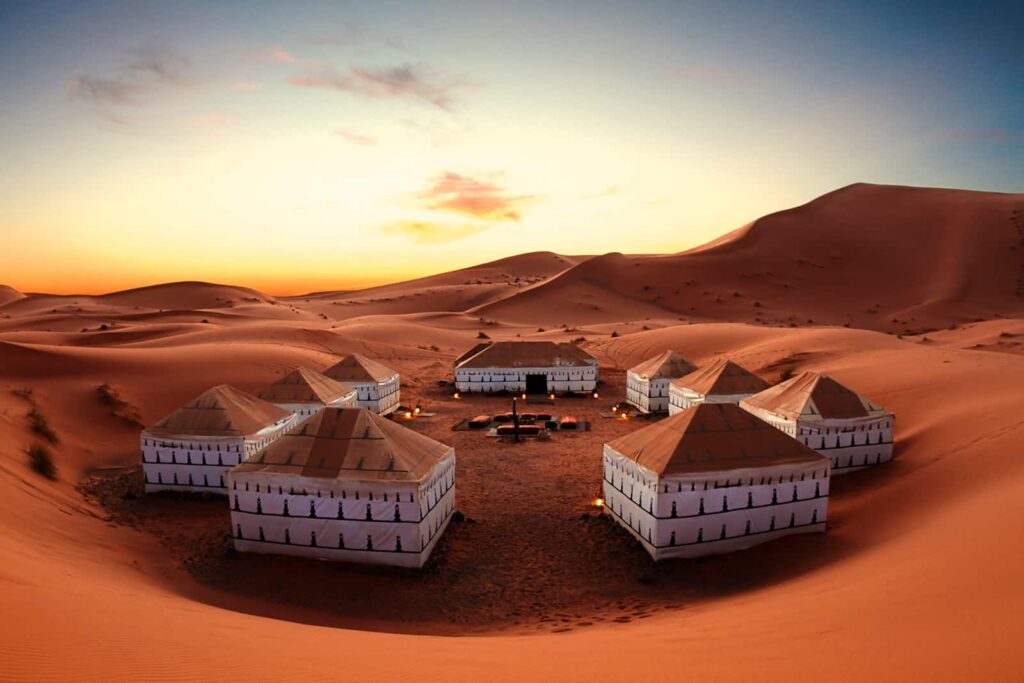
For a truly unique adventure, spend a night under the stars in the vast Sahara Desert. Explore the golden dunes of Erg Chebbi or Erg Chigaga on camelback, and don’t miss out on the incredible sunrise or sunset views.
Hassan II Mosque
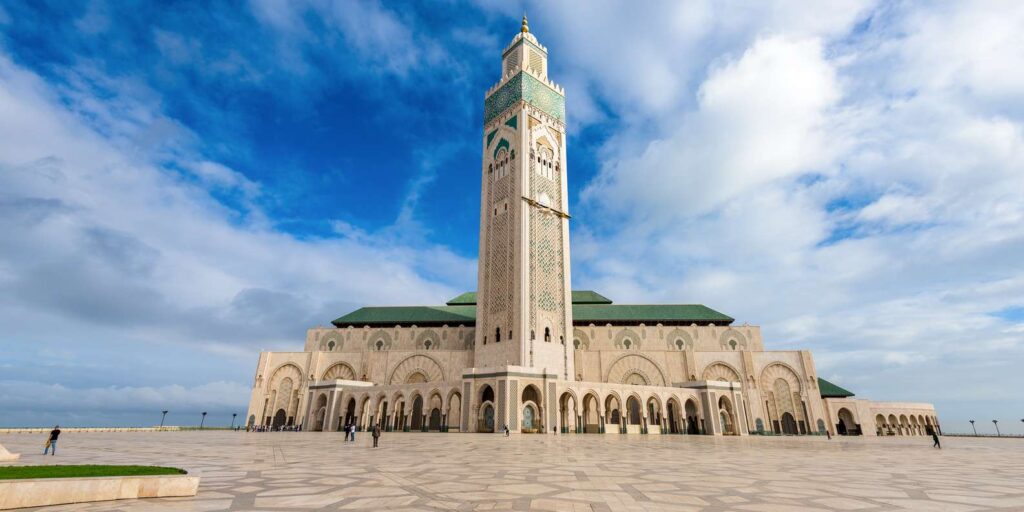
Located in Casablanca, the Hassan II Mosque is a modern architectural marvel. With its intricate design, oceanfront location, and status as one of the world’s largest mosques, it’s a must-visit for architecture enthusiasts.
Moroccan Cuisine
A Fusion of Flavors
Food is at the heart of Moroccan culture, and the cuisine here is a delightful blend of flavors and spices. Think fragrant tagines, tender couscous, and perfectly spiced meats complemented by olives and preserved lemons.
Must-Try Dishes
- Tagine: A slow-cooked stew of meat, vegetables, or fish, cooked in a clay pot.
- Couscous: Typically served with a mix of vegetables and meat, couscous is a Moroccan staple.
- Harira: A hearty soup made with lentils, tomatoes, and spices—perfect for a chilly evening.
- Pastilla: A sweet and savory pie, often filled with pigeon or chicken and topped with powdered sugar and cinnamon.
The Iconic Mint Tea
No trip to Morocco is complete without experiencing its tea culture. Moroccans take their mint tea seriously—it’s a sign of hospitality and tradition. Served hot and sweet, it’s the perfect way to relax after a day of exploring.
Moroccan Crafts & Souvenirs
Morocco has a long-standing tradition of craftsmanship, which is reflected in its vibrant souks. Don’t leave without picking up some of these treasures as souvenirs.
- Rugs: Handwoven Berber rugs are famous for their intricate patterns and bold colors.
- Argan Oil: Sourced from southwestern Morocco, argan oil is prized for its beauty and health benefits. Visit a women’s cooperative to see how it’s made.
- Pottery and Ceramics: The bold patterns and colors of Moroccan pottery make it a unique keepsake.
- Leather Goods: Cities like Fez are known for their traditional tanneries, producing high-quality leather bags, wallets, and shoes.
Adventures for Every Traveler
For thrill-seekers, Morocco’s natural landscapes offer plenty of adventure activities.
Trekking and Rock Climbing
The Atlas Mountains are a haven for hikers, with routes ranging from beginner-friendly trails to challenging summits like Mount Toubkal, North Africa’s highest peak. Todra Gorge, with its towering rock walls, is a popular destination for rock climbing enthusiasts.
Surfing Along the Coast
Visit Taghazout, a small fishing village turned surfing hub, for perfect waves and a laid-back vibe. Whether you’re a beginner or a seasoned surfer, Morocco’s Atlantic coastline has beaches for all skill levels.
The Dades Valley
The scenic Dades Valley, known as the “Valley of a Thousand Kasbahs,” is a picturesque spot for exploring Morocco’s dramatic landscapes and Berber villages.
Ouzoud Waterfalls
Situated in the Middle Atlas Mountains, Ouzoud Waterfalls is a serene escape from city life. Enjoy a hike around the falls or take a boat ride at the base while spotting playful monkeys in the surrounding trees.
Why Morocco Should Be Your Next Travel Destination
Morocco’s rich history, vibrant culture, and diverse landscapes make it an unparalleled travel destination. From wandering through ancient medinas and sipping mint tea in colorful courtyards to trekking the Atlas Mountains and camping under the Sahara stars, every adventure in Morocco is unforgettable.
If you’re ready to experience the magic of Morocco for yourself, start planning your dream trip today. Whether you’re after culture, adventure, or cuisine, Morocco welcomes you with open arms and endless possibilities.
By JobHijra

